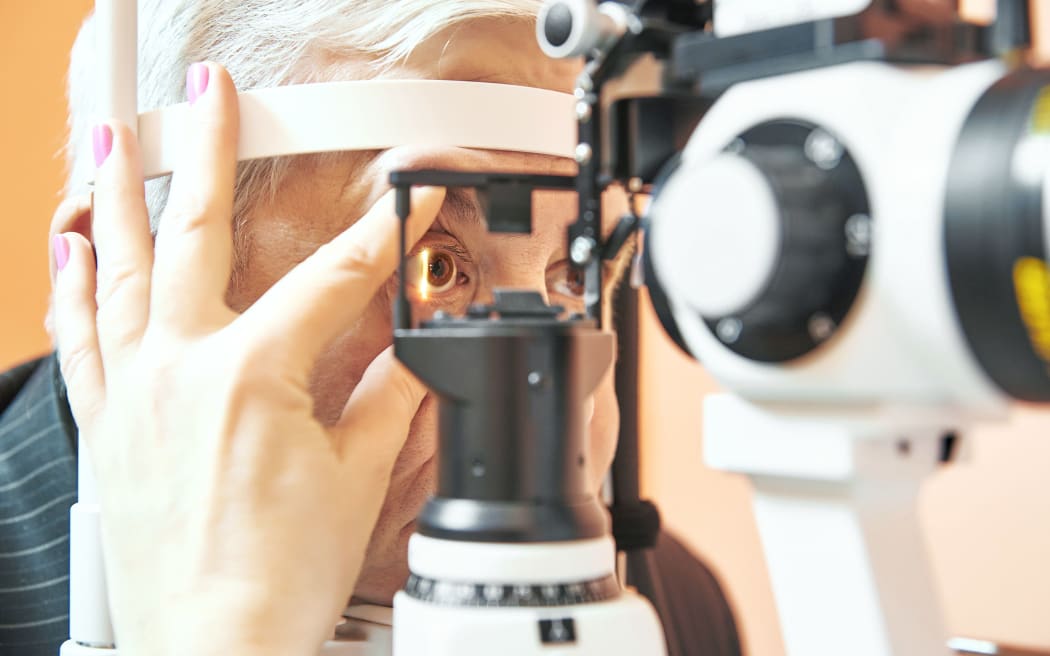
File photo Photo: 123rf
Eye surgeons are warning they may not be able to cope with an increased demand for cataract operations now that more patients will qualify.
The government is trying to remove the "postcode lottery" for surgery, starting with cataracts.
Health Minister Ayesha Verrall on Monday announced eligibility for cataract surgery would be standardised across the country, which would mean more people meeting the requirements.
Doctors wanted people to have fairer access, but with the public health system under enormous pressure, ophthalmologists said they were worried they may fail to deliver.
Grey Power Otago president Jo Millar said getting cataract surgery changed her life.
"It's almost like having seen the windows and thinking I must clean my windows ... and then the cataract operation was done and suddenly I thought oh that's what it is, the windows are all clean," she said
"It's just amazing what it does do".
She was pleased the threshold for getting cataract surgery would now be the same across the country.
"We have had lots of people really upset about the fact that they wait so long.
"We've got people that are now without their drivers licenses because they haven't been able to get their cataracts done.
"It has had a huge impact on people's lives and their day to day living".
Up until now, people in Canterbury and Southland needed a score of 61 to be eligible for surgery - meaning their eyesight was so bad they couldn't drive.
But in Auckland and Waitematā a score of 46 or mildly reduced vision was enough to qualify.
A score of 46 will become the national standard but it would take 18 months before it was rolled out everywhere.
Christchurch based optometrist Rochelle van Eysden was delighted at the change.
"It's very hard having to tell people they don't make the threshold in Canterbury, knowing that they would in other areas.
"So it's very exciting to actually have consistency and a threshold attainable for those who need it".
She said operating earlier meant a much better quality of life for patients.
Currently, there were almost 8000 people on the waiting list.
The Health Minister promised there would be 3500 more operations over the next 18 months as a result of the changes.
The Royal Australian and New Zealand College of Ophthalmologists said making access to surgery fairer had been a long time coming.
But spokesperson Dr Jesse Gale was nervous about whether public hospitals would be able to cope with increased demand.
He thought there would have be trade-offs.
"Hospitals will probably need to allocate some resources just to cataracts, which in a stretched service might reduce access to other types of eye surgery".
He said the plan to outsource some operations to private ophthalmologists could be effective as long as the price was right.
But he wasn't sure how the government was going to improve productivity when all public hospitals were working hard to be as efficient as possible.
"None of these hospitals are deliberately being inefficient so there's not a lot of savings to be made in telling people to be more efficient in their surgical booking".
Rochelle van Eysden said one way to ease the increased load on ophthalmologists would be to make more use of optometrists who could take over looking after patients once they'd had surgery.
"Optometrists are wider spread in the community so if they have to go to a main centre for their cataract surgery, they can return home and have their post-operative care done in the community by their local optometrist".
She hoped the government and Te Whatu Ora might look at the idea but said they would have to pay optometrists to provide the care.
National's health spokesperson Shane Reti told Morning Report he agreed with exploring using optometrists to take over post surgery care.
He said National would also address problems with the workforce.
"That's the concern we've got, that there's not the workforce to do these operations so the waiting list will continue to increase," he said.
"I actually think this will hinge on how much private capacity they're able to utilise, I think the public system is tapped out."
Reti said it takes ten plus years of experience for ophthalmologists to do this kind of surgery.
He also questioned the government's announcement for cataracts when other surgical waiting lists have a timeframe.


